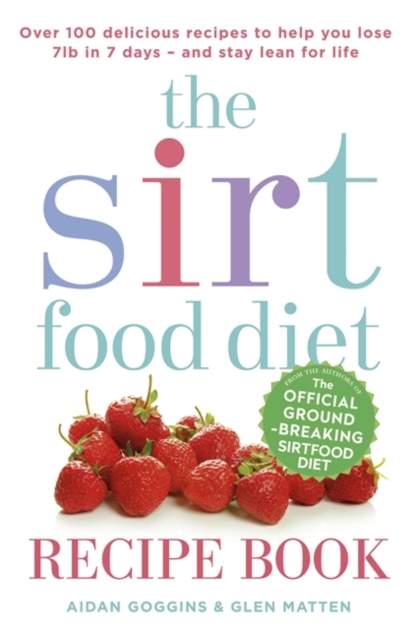Love your lovage! (It's a superfood)
The little-known herb lovage is one of the top 20 health foods, according to the authors of The Sirtfood Diet, a convincing new book about optimum nutrition for health and weight loss. Lovage is rich in quercetin, a potent antioxidant with an array of health benefits. Described as tasting like a cross between celery and parsley with hints of curry and aniseed, lovage was once famed as an aphrodisiac – apt for Valentine’s Day. (The name lovage stems from ‘love ache’; ‘ache’ being the medieval name for parsley and nothing to do with broken hearts.) You can use lovage leaves in lots of ways: as a garnish, in salads or omelettes, or steamed as a side – ‘lovely with roast chicken’, says Hugh Fearnley-Whittingstall.
Other food recommended in the book include rocket, parsley, red chicory, kale, celery, walnuts, turmeric and extra virgin olive oil, plus 85 per cent dark chocolate, strawberries, medjool dates, coffee, matcha green tea and red wine. TV chef and food writer Lorraine Pascale is a Sirtfood devotee: ‘The great thing is that lots of them are foods we eat every day.’
You are unlikely to find lovage in the greengrocer, so order seeds from Jekka’s Herb Farm (www.jekkasherbfarm.com), or look in your local garden centre for small plants come spring.
 The Sirtfood Diet has many similar components to the Mediterranean diet, both being based on abundant fruit and vegetables, olive oil, some fish and poultry, a little red meat plus red wine.
The Sirtfood Diet has many similar components to the Mediterranean diet, both being based on abundant fruit and vegetables, olive oil, some fish and poultry, a little red meat plus red wine.
• The Sirtfood Diet by Aidan Goggins and Glen Matten, £7.99, Yellow Kite. To order a copy for £6.39, visit www.you-bookshop.co.uk*
Q. My husband’s doctor talks about the risks and benefits of taking a drug (in his case, statins), but we are confused about the ‘absolute’ and ‘relative’ statistical risks of getting a disease. Could you explain?
A. The statistics you need to know are ‘absolute’ figures: your risk of developing a disease over a period of time and the reduction if you take a certain drug. As New Scientist writer Richard Webb explains: ‘Say you read that popping a certain pill will reduce the risk of having a stroke by 50%. This relative number means nothing if you don’t know how likely you are to have a stroke in the first place. If that absolute number is (say) three in 1,000, a 50% reduction will take it down to two in 1,000 – a puny decrease.’
According to a 2015 paper by Dr David M Diamond of the University of South Florida and health researcher Dr Uffe Ravnskov, statins benefit only about one in 100 people, but by quoting the relative number, they can appear to benefit 30-50 per cent of the population. The writers condemn this as ‘statistical deception’.
Not everyone who takes a drug will benefit and many drugs have adverse side effects. So you also need to know the number needed to treat (NNT) and the number needed to harm (NNH).
Professor David Newman, director of clinical research at the Icahn School of Medicine at Mount Sinai, and colleagues analysed data from statins given over five years for heart disease prevention to patients who have never had a heart attack or stroke. They estimate that statins prevented heart attacks in one in 104 patients, and strokes in one in 154 (the NNT). However, they calculate that one in 100 will develop diabetes as a consequence and one in ten will suffer muscle damage (NNH). Visit The NNT (www.thennt.com) for details.
Professor Newman believes that ‘lifestyle interventions such as a Mediterranean diet (above) are substantially more powerful than statins in achieving cardiovascular benefits, and come without harm.’
 BOOK OF THE WEEK; A Little, Aloud with Love, edited by Angela Macmillan (Chatto & Windus)/ £12.99
BOOK OF THE WEEK; A Little, Aloud with Love, edited by Angela Macmillan (Chatto & Windus)/ £12.99
The clue is in the title with this compelling new anthology of poetry and prose designed to be read aloud to someone you love. It is edited by Angela Macmillan, who works with The Reader (www.thereader.org.uk), a wonderful charity that sets up reading groups in community settings including nurseries, schools, care homes, hospitals and prisons. As well as having multiple health benefits, being read to is, as Stephen Fry says, ‘pure pleasure’.
To order a copy for £9.47 visit www.you-bookshop.co.uk or call 0808-272 0808.